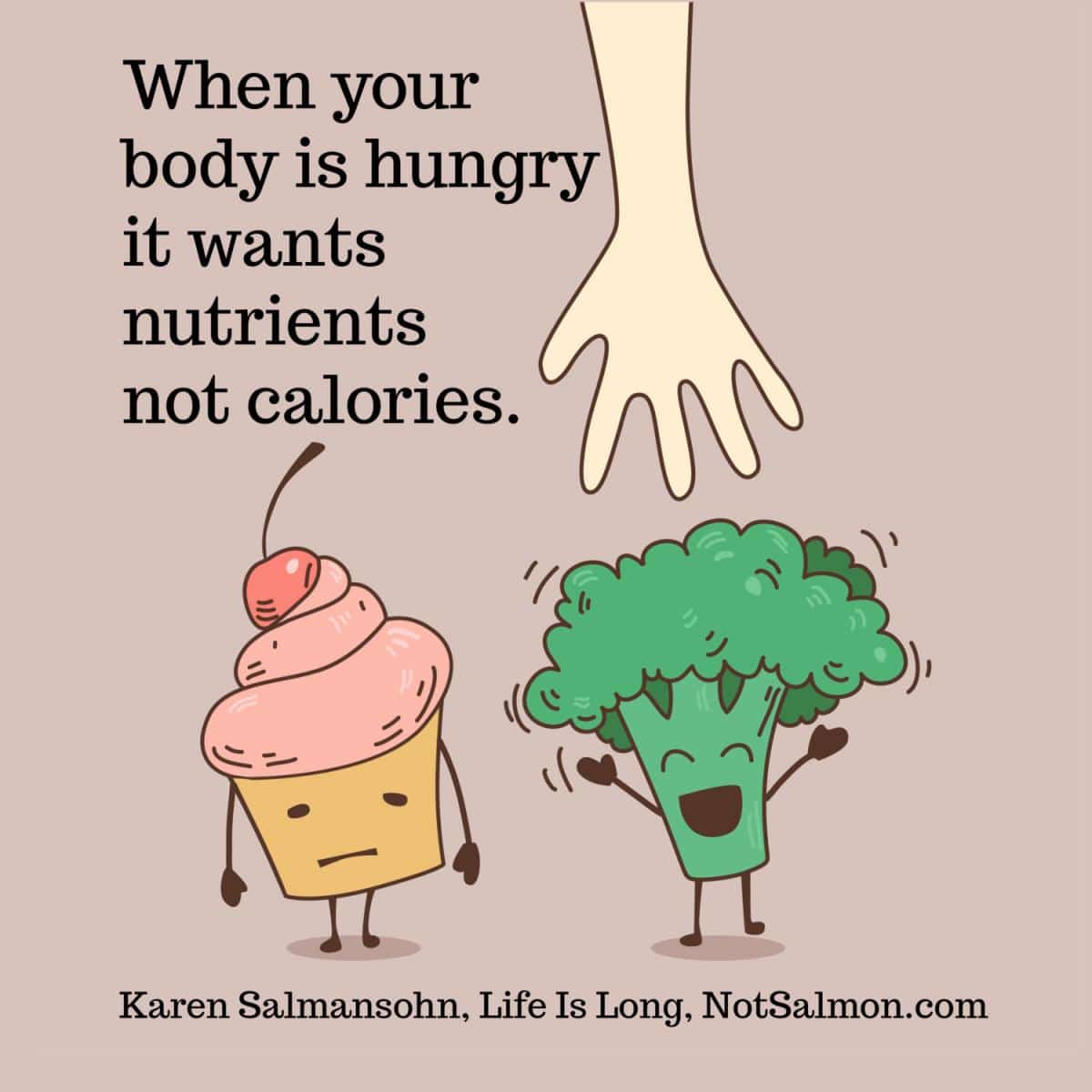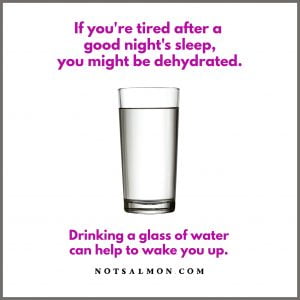 Discover the common diet mistakes women over 40 make and learn effective strategies for a healthier lifestyle in this comprehensive health guide.
Discover the common diet mistakes women over 40 make and learn effective strategies for a healthier lifestyle in this comprehensive health guide.
As I waved goodbye to my 30s and stepped into my 40s, suddenly my metabolism – once a reliable friend – started acting like a frenemy.
The same old diet tricks no longer worked their magic. And suddenly my favorite jeans were getting snugger (and snugger) – despite my tried-and-true routines!
If you’re a woman over 40 – maybe you relate? Are you suddenly noticing your body’s acting like it’s been swapped out overnight for a slightly more temperamental model?
If so, you’re in the right place. I’m an over-40 bestselling wellness author – known for my longevity book: “Life Is Long: 50 tips to live a little closer to forever.”
Plus I’m the founder of the nutritionist-recommended online program, “The Stop Emotional Eating Course.”
I’ve had the privilege of helping women all over the world to create healthier eating patterns. In this article, I’ll be sharing some of the big diet mistakes we women over 40 make – and what we need to do instead.
8 Diet Mistakes Women Over 40 Make and How To Fix Them
If you’re a woman over 40 trying to figure out how to maintain a diet that keeps you healthy and slim – here’s the lowdown on the common diet mistakes we over-40 women make – and how to fix them!
1. Not Eating Enough Protein
I thought protein was just for those trying to bulk up, but nope! Research shows that after 40, we lose muscle mass at a frightening pace – at a rate of up to 8% per decade. The fix? Sneak protein into your meals like a culinary ninja. It’s suggested to consume at least 0.8 grams of protein per pound of ideal body weight. Protein is essential for building body tissue and provides better satiety.
Protein Pro Tips:
- Aim for 1.2 grams per kilogram of body weight. That’s 0.8 grams of protein per pound. It’s essential, not excessive.
- Diversify your protein sources. It’s like having a playlist for your palate.
- Snack on protein-rich foods. Greek yogurt isn’t just trendy. It’s a nutritional powerhouse.
2. Incorrect Fat Consumption
I used to shy away from fats, but it turns out they’re not all villains. Avoiding fats or consuming the wrong types (like high-fat and high-carb combinations) can be detrimental. Healthy fats are necessary for hormonal balance and brain health. In particular, Omega-3s are crucial for slowing age-related decline, supporting cognitive function and battling inflammation (reports a study in the Journal of Nutrition). They can also impact the length of telomeres, which are indicators of aging. In particular, you should explore whole fat sources – like avocados, wild fish, and use oils like extra virgin olive oil.
Fat Facts:
- Embrace omega-3s with open arms (and mouths) with foods like salmon and walnuts.
- Cook with heart-healthy oils like olive oil. Your heart will thank you.
- Choose whole-food fat sources. Avocados aren’t just for Instagram. They’re for your health.
3. Not Eating Enough Cruciferous Vegetables
Cruciferous vegetables are nutrient-dense and help in detoxification, especially of estrogens. They are rich in fiber and essential for gut health. Plus, they’re packed with important fibers and nutrients that help to prevent chronic diseases. In fact, PLOS Medicine tells us they’re nutritional powerhouses, and should take center stage and not just be seen as a sometimes side dish. So we over 40 women need to give veggies the spotlight they deserve: a minimum of five servings per day is recommended. Plus, it’s important to focus on consuming non-starchy vegetables – and limit intake of these high-glycemic carbs – so we can better control our blood sugar and insulin response.
Veggie Victory Plan:
- Aim for at least 5 servings of a variety of cruciferous and non-starchy vegetables daily.
- Get creative. Add veggies to smoothies, omelets, even desserts.
- Play with cooking methods. Roasting, grilling, steaming – make veggies exciting!
Cruciferous Vegetables:
- Broccoli
- Cauliflower
- Brussels Sprouts
- Kale
- Cabbage (red and green)
- Bok Choy
- Arugula
- Collard Greens
- Radishes
- Turnips
- Rutabaga
- Watercress
Non-Starchy Vegetables:
- Spinach
- Lettuce (various types like romaine, leafy greens)
- Asparagus
- Zucchini
- Cucumbers
- Bell Peppers (red, green, yellow)
- Mushrooms
- Eggplant
- Celery
- Green Beans
- Tomatoes
- Artichokes
4. Counting Calories Rather Than Macros
 Counting calories was my go-to, but it turns out that’s not the key. Contemporary research in JAMA says it’s all about the quality of your diet, not just the calorie count.
Counting calories was my go-to, but it turns out that’s not the key. Contemporary research in JAMA says it’s all about the quality of your diet, not just the calorie count.
Meaning? Don’t count calories – count macros – and make sure you are getting the types of macronutrients that will help prevent hormonal imbalances (protein, fats, etc).
Basically, the quality and source of calories are the most important thing to focus on.
Mindful Munching:
- Embrace whole foods – fruits, veggies, whole grains, lean proteins.
- Read food labels like a detective. Avoid additives and hidden sugars.
- Practice mindful eating. Enjoy each bite and listen to your body.
5. Neglecting Digestive Enzymes
As we age, our digestion needs more TLC. I learned it’s not about bland diets but about supporting our digestive system with the right foods and habits. Gastroenterology Research and Practice highlights our dwindling enzyme production. Meaning? As we age, the production of digestive enzymes decreases. As a result, we need to supplement with enzymes, especially for protein and fat digestion, because enzymes can aid in better nutrient absorption.
Digestive Tune-Up Tips:
- Consider enzyme supplements, especially if you have trouble digesting certain foods.
- Eat slowly and chew your food thoroughly.
- Incorporate probiotics for a happy gut.
6. Not drinking enough water.
 I underestimated the power of hydration. Hydration is crucial, especially as we step into our 40s. It helps us to maintain balanced metabolism, detoxification, and overall well-being – which tends to slow down with age (says research in The Journal of Clinical Endocrinology and Metabolism). Basically, as estrogen levels fluctuate during perimenopause and menopause, staying hydrated can help mitigate symptoms and maintain overall well-being.
I underestimated the power of hydration. Hydration is crucial, especially as we step into our 40s. It helps us to maintain balanced metabolism, detoxification, and overall well-being – which tends to slow down with age (says research in The Journal of Clinical Endocrinology and Metabolism). Basically, as estrogen levels fluctuate during perimenopause and menopause, staying hydrated can help mitigate symptoms and maintain overall well-being.
Hydration Hacks :
- Aim for at least 8 glasses of water a day – more if you’re active.
- Infuse your water with natural flavors like cucumber, mint, or berries for an added health boost.
- Keep a water bottle handy as a physical reminder to hydrate regularly.
7. Neglecting Sleep
Quality sleep becomes even more critical in your 40s. Hormonal changes can disrupt sleep patterns, impacting your metabolism and appetite-regulating hormones like ghrelin and leptin. Poor sleep can mess with your metabolism and hunger hormones – per the Annals of Internal Medicine. Plus a good night’s sleep is essential for managing stress levels, which can affect hormonal balance. Basically, quality sleep is like an empowering health reset button for your body. You need adequate sleep to maintain a healthy weight, reduce the risk of chronic diseases, and maintain good cognitive function.
Sleep Strategy:
- Aim for 7-9 hours of sleep per night to support hormonal balance.
- Establish a calming bedtime routine, such as reading or meditation, to promote relaxation.
- Ensure your bedroom environment supports sleep: cool, dark, and quiet.
8. Not Managing Stress
For women over 40, stress management is vital for maintaining hormonal balance and preventing weight gain – which are especially challenging for perimenopausal and menopausal women. Basically, chronic stress can lead to elevated cortisol levels, disrupting your body’s normal hormonal functions and leading to increased appetite and cravings (says The Journal of Eating Disorders). With this in mind, try these effective ways to manage your stress.
Stress-Busting Secrets:
- Incorporate activities like yoga or tai chi, which are beneficial for both mind and body relaxation.
- Regularly take short breaks throughout the day to breathe deeply or engage in activities that bring joy.
- Explore simple meditation practices and grounding tools – like these!
- Cultivate a support network of friends or groups that understand the unique challenges of this life stage.
In Summary:
Navigating dietary changes in your 40s is about understanding your body’s new needs and responding with smart, sustainable choices. It’s not just about what you eat. It’s about holistic wellness – nourishing your body, mind, and spirit.
If you’re a woman over 40 and would like more support you in embracing healthier eating habits…explore a 1-on-1 Mindset Mastery Session with me on Zoom.
Learn to Regulate Your Emotions So You Stop Food Cravings
Explore my nutritionist recommended online program: The Stop Emotional Eating Course.
Think happier. Think calmer.
Think about subscribing for free weekly tools here.
No SPAM, ever! Read the Privacy Policy for more information.
One last step!
Please go to your inbox and click the confirmation link we just emailed you so you can start to get your free weekly NotSalmon Happiness Tools! Plus, you’ll immediately receive a chunklette of Karen’s bestselling Bounce Back Book!


 Discover the common diet mistakes women over 40 make and learn effective strategies for a healthier lifestyle in this comprehensive health guide.
Discover the common diet mistakes women over 40 make and learn effective strategies for a healthier lifestyle in this comprehensive health guide. Counting calories was my go-to, but it turns out that’s not the key. Contemporary research in JAMA says it’s all about the quality of your diet,
Counting calories was my go-to, but it turns out that’s not the key. Contemporary research in JAMA says it’s all about the quality of your diet,  I underestimated the
I underestimated the 